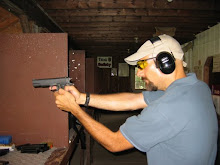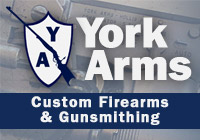Seventy years ago today, the Japanese staged a surprise attack on the American fleet in the Pacific stationed at Pearl Harbor.
Some 2,400 American soldiers and sailors lost their lives in the attack (complete list here). The attack would draw the United States into World War II in an official capacity, bringing to bear the entire might of the American industrial machine on the Axis powers. The manufacturing powerhouse of the American worker turned towards making objects of war: tanks, planes, bombs, and guns. Companies that had formerly made typewriters, sewing machines, and jukeboxes were making firearms. American car manufacturers ceased making new car models from 1942 through 1945.
Within four years, the Japanese Imperial Army would surrender, abjectly and completely defeated. Two of Japan's cities lay in ashes, a result of the first, second, and only atomic bombardments in the nuclear age. The power of the atom had been turned into a weapon, with devastating effects on the world stage for generations. From "duck and cover" to "The Day After", generations have grown up under the threat of nuclear annihilation, all traced in part to that fateful day seventy years ago.
And now, Japan is one of our allies and our naval fleet is but a shadow of that which was destroyed - a lot has changed in 70 years...
That is all.
Subscribe to:
Post Comments (Atom)

 (image courtesy of
(image courtesy of 





6 comments:
Not sure our fleet is a shadow of what it was. it is the child of Pearl Harbor. Instead of battle ships on the seas, we send super carriers the likes of which no other nation has. . . and the air wings they carry can bring death and destruction like never seen before.
It was sad yesterday seeing the memorial at Pearl on CNN and seeing only four survivors could make the trip. Soon they will all be gone and it will be up to us to make sure it is not forgotten. . . .
I posted a list of ships from both sides on my blog, interesting to see what happened to the Japanese fleet. . . .
Einstein's letter - o.k., Szilard/Teller/Wigner's letter, signed by Einstein - to Roosevelt was sent August 2, 1939.
The Pearl attack no doubt reinforced the need for the Manhattan Project in the minds of some Americans; the attack did not cause the nuclear age, but certainly hastenend the coming of the same.
For the P.C. crowd, how villified would Harry S. be today if he had that tool at his disposal but did not use it? For the revisionists & simplifiers, the Pearl attack was perhaps the 20th Century's ultimate example of "PSG, WSP".
Less than 10 years after Pearl, we used a humiliated, prostrate Japan as a base from which to fight another war...oops, "police action"...Forgotten as it may be, THAT has got to be a huge "ooh YEAH!" moment for all who fought or sacrificed to overcome that nasty "Empire of Japan" that FDR spoke so eloquently about on December 8th, 1941.
God Bless America. Always.
The United States is based on the premise that Civilians control the Military. Sad to think that our Military Personnel have to take orders from a Guy who makes FDR look like Patton! And he was RAISED in Hawaii! If he didn't get the message about 7 December while growing up where it happened..... : (
Like JD said, from a straight 'number of ships' view point, you are right. I hate making blanket statements, but I don't think the world will ever see another Navy like what the US had at the end of WWII(heck, it will never see another Navy like the Pacific FLEET at the end of WWII).
One of the more impressive engineering feats of the day was the recovery of the USS California, Nevada and West Virgina. These battleships were listed as lost at Pearl Harbor, but late refloated and repaired enough to get some revenge. Nevada did some shelling at Normandy, and the West Virgina took part on the last meeting between big gun battleships at the Battle of Surigao Strait, before shelling Okinowa and Iwo Jima.
Hiroshima and Nagasaki were targeted because of their still functioning defense industries and because they had not been firebombed, such as Tokyo was.
If instead of bombing Hiroshima and Nagasaki with nuclear weapons, we had continued to bomb Japan's cities with conventional weapons and invaded, millions more Japanese and over a million Americans would have been killed or wounded. President Truman wisely chose sacrificing Japanese lives over unnecessarily sacrificing American lives.
Some say the Japanese surrendered because the Soviet Union had recently entered the war against Japan, and the Japanese feared the threat of the Soviet Union more than anything that the United States could do and did.
As do JD and greg, I'd contend that today's navy has much more fire power than the WWII US Navy. Besides the fleet carriers, we have a large number of nuclear submarines that can either launch ICBM, sink other nations' submarines, or both.
Not to mention the large number and variety of "assault carriers" that can land US Marines on enemy shores.
Consider how many planes a WWII fleet carrier could hold and how much ordinance each plane could carry. Then look at what a fleet carrier of today can hold and how much ordinance each of those planes can deliver.
I think you'll see a difference so large that it defies easy comparison.
Post a Comment